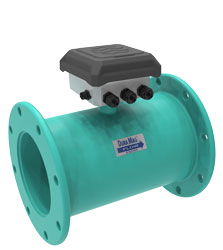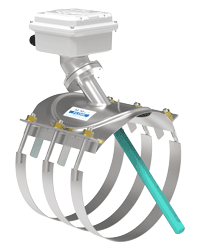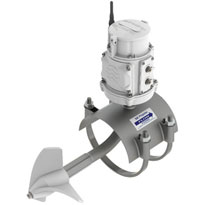-
PRODUCTS
-
Differential Pressure Flow Meters V-Cone
VM V-Cone
Wafer Cone
Exact Steam
Connected Solutions FlowConnect
McCrometer Connect
Smart Output
SmartTrax
Electromagnetic Flow Meters FPI Mag
MCMAG 2000
MCMAG 3000
SPI Mag
ULTRA Mag
Dura Mag
Oil & Gas Series Field Mag 3000
Field Mag 5000
Electromagnetic Flow Meter Electronics ProComm
ProComm GO
Propeller Flow Meters FS100 Flow Straightener
FS200 Flow Straightener
McPropeller
Water Specialties.
-
Differential Pressure Flow Meters V-Cone
- INDUSTRIES
- RESOURCES
- BLOG
- SUPPORT
Flow Meters for Agriculture and Irrigation Applications
Flow Meters for Agriculture and Irrigation Applications
McCrometer flow meters are a favorite in agriculture, especially for irrigation purposes.
For more than 65 years, farmers have relied on McCrometer meters to get the job done with unprecedented accuracy and exceptional durability.
Farmers and irrigators can rely on McCrometer flow meters, period.
Meet the FlowConnect, McCrometer’s built-in telemetry unit compatible with McPropeller and Water Specialties propeller meters. FlowConnect is the telemetry unit providing accurate, automated data collection to help you make informed decisions about your day-to-day operations.
This telemetry unit is the ideal choice for irrigators and farmers with little or no time to manually collect the amount of flow data they need to manage irrigation. For irrigators and farmers with little or no time for manual data collection, this telemetry unit is the ideal choice (and can be quick shipped to you in a DIY kit!)
The FlowConnect is easy to install and setup, and is a favorite of many Natural Resource District (NRDs). Never question your data accuracy again!
How to Select the Right Agriculture Flow Meter
Irrigation water meters are critical tools for the agriculture industry. Whether you’re looking for greater accuracy, easy installation, control over your irrigation schedule, data transfer capabilities, or improved water quality, there are a number of solutions from which to choose.
The two most common types of agricultural irrigation flow meters are electromagnetic flow meters and propeller (mechanical) flow meters.
When choosing an irrigation meter, it’s important to keep the following in mind in order to save on energy costs, conserve water, and maximize crop yields:
- The application - Propeller meters work well for clean water applications, but they aren’t the best choice for dirty water applications where slurries, litter, and weeds can get caught in the moving parts. Electromagnetic (mag) meters have no moving parts and offer high accuracy for both clean and dirty water applications.
- Minimum and maximum flow ranges - When using a propeller flow meter, it is crucial to be aware of the minimum and maximum flow range in order to ensure an accurate reading. If the flow is too low, the bearing assembly won’t activate and turn the propeller quickly enough for an accurate reading. If the flow rate is too high, it could damage the bearing and require costly repairs. Electromagnetic flow meters may be more beneficial when flow ranges are uncertain, as they offer a broader flow range and have no moving parts to repair.
- Whether a signal output is needed - Some applications require a flow meter to issue a signal output to remote telemetry systems so irrigators can remotely collect flow meter data. While signal outputs can be added to propeller flow meters via a transmitter or digital register, they’re standard in telemetry-ready mag meter models.
- The amount of space available for installation - Some propeller meters require more installation space since they have longer straight-run requirements than electromagnetic flow meters. However, McCrometer’s Mc®Propeller can be installed with straightening vanes and flow straighteners to reduce straight-run requirements.
It is also possible to retrofit an existing Mc®Propeller with the Mc®Mag2000 - the only mag meter on the market that can be used with flow straighteners. Accommodating an existing flow straightening component with the Mc®Mag2000 allows the meter to be applied to a wider range of applications - cutting the straight-run requirements in half. - Line size - Both propeller and electromagnetic flow meters are available in full-bore and insertion-style models. For larger line sizes, an insertion-style flow meter is ideal for ease of use and to minimize cost.
Insertion meters are also easier to clean—there’s no need to remove a heavy piece of full-bore pipe to clean and maintain the meter. This is ideal for slurries and dairy-effluent flow applications.
What Our Customers Are Saying
"My decision to specify McCrometer is based upon these four basic facts: They are ruggedly built, simple to install, easy to read and, above all, have had consistently high quality for more than 20 years."
D. Bower, Ewing Irrigation Products
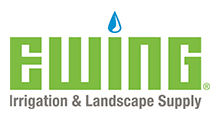
Featured McCrometer Agriculture and Irrigation Meters
Electromagnetic Flow Meters
Electromagnetic flow meters are volumetric flow meters without moving parts. Mag meters have risen in popularity among farmers and irrigators because there are no moving parts to fix, and there’s no need for preventive maintenance.
Electromagnetic flow meters are ideal when battery life and accuracy are priorities, such as in remote locations. They fit into tight spaces, and the lack of moving parts ensures they’re not affected by debris.
Dura Mag®
DuraMag is a battery-powered flanged mag meter with a five-year battery life. It’s pre-calibrated with an internal data logger with five years of data storage and telemetry-ready output options.
Mc®Mag 3000™
The McMag3000™ is a battery-powered mag meter with data-logging capability, designed for the toughest flow challenges in agriculture.
Mc®Mag 2000™
The McMag2000™ is a reliable, easy-to-read mag meter with minimal maintenance and downtime, and it is the only mag meter on the market with a price tag comparable to a propeller meter.
Propeller Meters
Propeller flow meters (also called turbine flow meters or impeller flow meters), measure the velocity inside a pipe and display its flow rate reading on a dial.
The agricultural industry has relied on mechanical flow meters for over a century, making them the most common type of water flow meter installed in the United States.
FS100 Flow Straightener™
The FS100 uses breakthrough flow-straightening technology for highly accurate, reliable flow measurement with minimal upstream and downstream pipe run requirements.
The Mc®Propeller
The Mc®Propeller is the best-selling propeller meter in the United States. Irrigators have trusted it since 1955 for its life-long components, affordability, and ease of installation, and operability.
Water Specialties®
The Water Specialties Propeller Meter is engineered to deliver superior performance, low maintenance, and unsurpassed durability.
Connected Solution
Collect, transmit and automate flow data. Allows for accurate and reliable timely water resource management.
FlowConnect®
FlowConnect is a built-in solution for collecting and transmitting flow data from McCrometer’s McPropeller and Water Specialties Propeller Meter, automating data collection to provide accurate and reliable information for water resource management.
Agriculture and Irrigation Flow Meter FAQs
Our specialists and customer service team members are happy to answer any questions you may have. In the meantime, here are a few we answer a lot.
How does debris affect flow meters?
Debris in flow is a concern for irrigators. Whether it affects your flow meter will depend on a wide variety of factors, including the type of debris and the type of flow meter. While many irrigators and farmers prefer mag meters for their lack of moving parts, the classic propeller flow meter is still a favored technology with a portion of the population.
Whether you prefer mag or propeller meters, McCrometer has debris solutions for both types of flow meters. Read further in our full blog post: “Debris in Flow: Meter Recommendations for Agricultural Applications”.
What is the difference between straightening vanes and flow straighteners?
Straightening vanes and flow straighteners both reduce swirl and assist propeller meters with obtaining accurate flow readings. Despite the similarities and differences between straightening vanes and flow straighteners, you should consider the demands of your application and any straight-run requirements when choosing one or the other.
What is the difference between the McMag2000 and McMag3000 flow meter?
Although the names may be similar, each mag meter has a unique construction and design, as well as different product specs and value-rich features that different customers favor. While the McMag3000 is slightly more accurate, the McMag2000 offers convenience and is DIY retrofit-capable for customers wanting to make the change from the saddle-style McPropeller to a “no moving parts” meter.
Request Info
Have questions? Need details? No one knows more about agriculture and irrigation flow meters than our team.
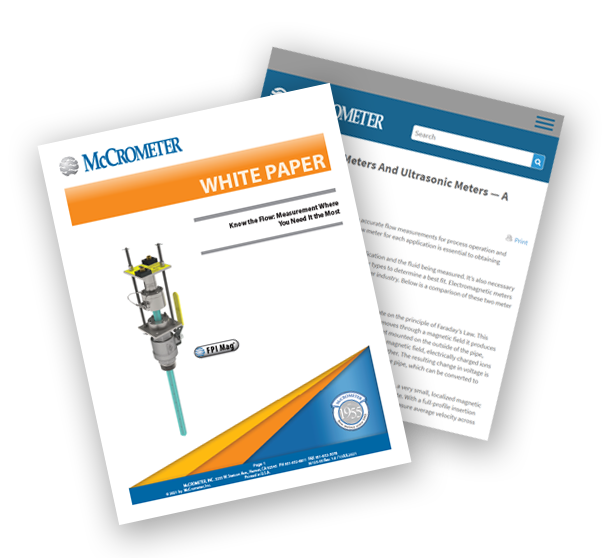
Knowledge Center
Check out further information about agriculture, irrigation and turf applications.


